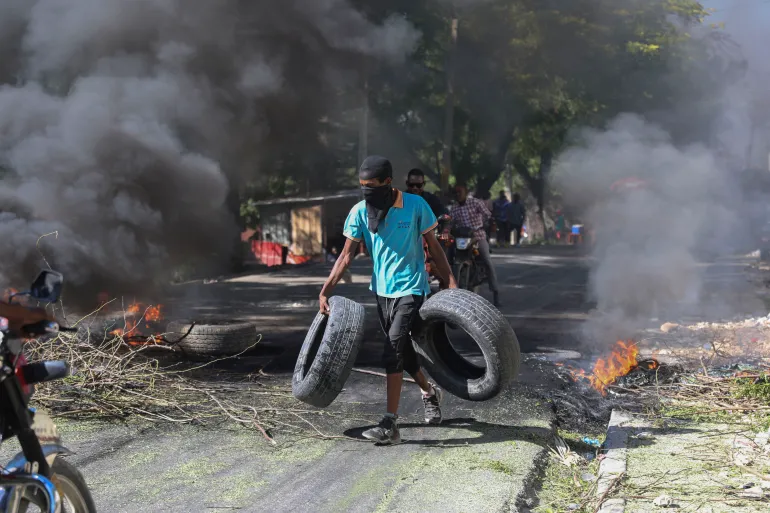The United Nations has ordered the evacuation of its staff from Haiti’s capital Port-au-Prince as clashes between armed gangs, the police and civilians armed with machetes intensified in recent days.
A UN helicopter on Monday ferried evacuees – 14 at a time – from the capital to the northern city of Cap-Haitien, with some scheduled to take flights out of the country. This comes after the main international airport in Port-au-Prince was closed due to commercial flights being hit by gunfire while landing and taking off earlier this month.
The airlift also includes foreign embassies and other relief agencies, diplomatic and security sources told Al Jazeera.
A United States Air Force C-130 aircraft landed in the capital Port-au-Prince’s airport on Sunday to transport American diplomats who were ordered to leave the US embassy, the US Southern Command said.
Most foreign embassies are now effectively closed, with staffing limited to a handful of senior officials and security details.
“The United Nations is not leaving Haiti. Our commitment to the Haitian people remains unwavering,” Stephane Dujarric, the spokesperson for the UN secretary-general, said in a statement.
“We are temporarily reducing our footprint in the capital,” he added. “The critical humanitarian programmes in Port-au-Prince as well as support for the Haitian people and authorities continue.”
Doctors Without Borders, known by its French initials MSF, also announced late last week that it was suspending critical care in Port-au-Prince as it accused police of targeting its staff and patients, including threats of rape and death.
“Every day that we cannot resume activities is a tragedy, as we are one of the few providers of a wide range of medical services that have remained open during this extremely difficult year,” said Christophe Garnier, MSF mission director in Haiti.
Food for the Poor (FFTP), which runs feeding programmes in Haiti, said it was no longer able to make regular food deliveries because of gang disruptions, noting the closure of the airport and gang roadblocks that make access to the main seaports “extremely hazardous”.
While the police had made “good efforts to respond to gang advances”, FFTP Haiti director Mario Nicoleau said he worried about access to fuel for food trucks. “There are still lines for fuel at the gas stations, but this seems to be getting better. There is still lots of shooting in several areas every day, and people are still being pushed out of neighbourhoods,” he added.
Source: Al Jazeera





